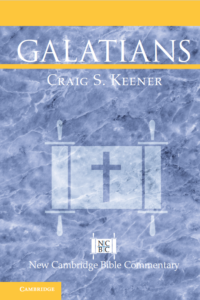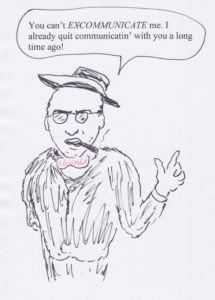Indonesian lectures on miracles, 2.2
21 minutes, including English and Indonesian translation
God’s son versus Pharaoh’s son—Exodus 4:22-23
The Lord continues to reaffirm his commission to Moses to perform the wonders God had commanded, but also warns that God will harden Pharaoh’s heart (4:21). The Lord also gives Moses a difficult message to give to Pharaoh when he refuses to release Israel. Israel is like a firstborn son, precious and special to God (4:22). YHWH says to Pharaoh: I told you to send away my son that he might serve me (4:23a). Pharaoh had been making Israel serve Pharaoh (1:13-14; 6:5), and planned to continue to do so (5:18). Now, however, YHWH demanded that Pharaoh let them serve YHWH (7:16; 8:1, 20; 9:1, 13; 10:3, 26). The LORD alone is God, and his people must serve and worship him alone (Exod 20:5; Deut 5:9; 6:13).
In some ancient Near Eastern legal customs, whatever one did to another’s child could be done to one’s own child; but certainly one dare not do harm to anyone precious to a powerful deity. Because Pharaoh (whose predecessor had drowned Israel’s babies) refused to release God’s firstborn, God would kill Pharaoh’s firstborn (4:23). In God’s mercy, he provided various warning plagues first; but the final plague, the one that would break Pharaoh’s resolve enough to let the Israelites leave the land, would be the death of the firstborn, both Pharaoh’s and his people’s (11:5; 12:29).
The Bible is very realistic: in this world, people do wicked things to other people. But those who do such things had better watch out. And especially when they do it to God’s own children, to those special to God because of their special trust in him, they had really better watch out. God does things different ways every time, so this is no prediction that God will always slay the sons of Pharaohs. It does remind us, however, that justice will ultimately come about (cf. also Rev 18:20-24).
Cambridge New Testament Commentary on Galatians
NIVAC Revelation
Zondervan has informed me that my NIV Application Commentary (eBook edition) is on sale at this moment for $4.99: http://bit.ly/nivacebooks This sale ends November 12.
Visiting professors
So prepare your sermon well
Dreams and Destiny: the Lord is in control—Genesis 37:9
In Genesis 37:9, Joseph dreamed that the sun, moon, and twelve stars bowed down to him. Joseph was just seventeen years old, and there was no way that he himself could have planned his destiny and imposed it onto a dream. This was God’s plan for him, God’s choice, no less than God’s choice of Jacob when he and Esau were both in the womb (25:23). These dreams are God-initiated rather than Joseph-initiated; God remains the main Actor behind the scenes.
It made sense neither for Joseph to boast as if it were his own plan (though the text does not specify that Joseph was boasting) nor for Joseph’s brothers to be jealous as if they could control their own destinies. It was God’s plan—and ultimately it would prove to bring about the deliverance of them all.
As in the case of Cain’s jealousy of Abel, however, there was something in the character of the human actors that would be consistent with God’s plan. Sin was crouching in Cain’s heart, leading to his murder of Abel (4:5-8), and many of Joseph’s brothers would want to kill him (37:20). Joseph, by contrast, kept serving the Lord, (39:9) and in his hardship continued attributing the honor to the Lord (40:8; 41:16). God has planned it so that human responsibility is part of his plan; God’s sovereignty and human responsibility are complementary, not mutually exclusive, options.
Yet despite the grandeur of the sun-moon-and-stars imagery—a step above his brothers’ sheathes bowing to him in 37:7—God does not reveal that all Egypt and Canaan will bow down to Joseph. Joseph will not need advance warning about that; when it happens, Joseph will have no reason to refuse it! God reveals only that his family will bow down to him, because Joseph will later need to recognize that as God’s plan.
Joseph’s exaltation over Egypt would rescue his generation of Egyptians and Canaanites. Yet the restoration of his family was a key part in God’s plan, since God had a special plan for his family that would extend beyond that generation and through history. Joseph may have been satisfied to be exalted over Egypt, but when his brothers unknowingly bowed down to him in Gen 42:6, Joseph remembered his dreams (42:9). God calls us, but we do not know all the details in advance. He is the one who orchestrates our lives, and he works through our obedience even when we do not understand.
We tend to exalt the human heroes of the stories when we retell them to children. But the real hero, though often behind the scenes, is the Lord himself. Let’s neither be proud of ourselves nor jealous of others that God exalts. Let’s praise the wise Lord of history and embrace gladly his wise plan.
Excommunicated gangster
Understanding Revelation (4 minutes)
Revelation was not meant to be hard to understand.
Indonesian lecture on miracles, 2.1-ancient parallels?
21 minutes, in English and Indonesian




